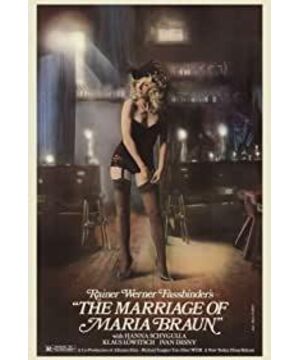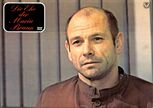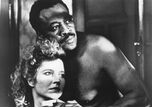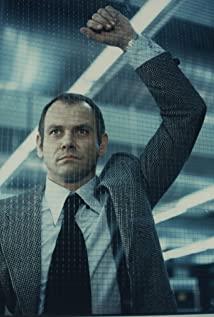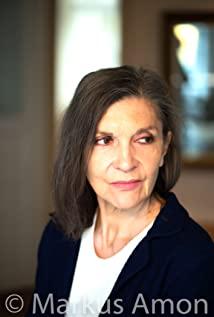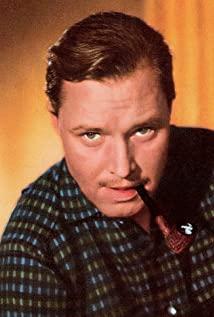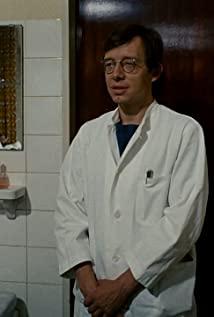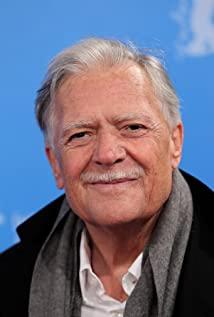2018.5.8 Yu Xian Er
Written on the front: I went to see "The Lady of Sand" before I finished my review. This is the first step I watched Fassbender, and it is the only one of these movies I recently watched that I want to rewatch .
lens
I saw this clip at the beginning in Ji Li's class, and it was amazing at the time.
A hole was blown out of the wall, and a couple of newlyweds appeared behind the camera. The bombing continued, the guests fled, and even the priest ran away. The newlyweds also chased the pastor and ran out. They pressed the pastor to the ground amid the gunfire and forced him to sign and seal their marriage.
I'm afraid it's not that I have never seen such a big wedding. Amazing, simply amazing.
Another shot of the interior shot through a blown hole. Photographers seem to like this lens design, so why not a door or a window? Maria said a sentence in the film, probably: You still have a door here, we don't need a door for a long time.
This scene speaks of the return of Maria's sister's husband, but also brings news of the death of Maria's husband Herman.
The scene scheduling and lens design of this clip are also very famous, and I have also observed them in Ji Li's class.
After experiencing the excitement of just entering the door and the news of her husband's death, the family cried, laughed, danced and hugged, and the heroine suddenly ran to the sink and started to wash her hands (???). A very long shot of water dripping from her hand, drop by drop, drop by drop.
How to shoot sad? cry, or howl? No, such a hand-washing lens is enough.
The director seems to particularly prefer such scenes:
First stand indoors and shoot out through the window, and push one by one until the whole picture is the scene outside the window.
Then the camera returns to the indoor characters, or the people who were originally indoors break through the boundary between inside and outside and go outside.
Interesting turnaround. There is a sense of reality, but also a sense of falsehood.
marriage
After one night and half a day of marriage, Herman left.
Life and death unknown.
It wasn't until years later that they started "the second day" of their marriage.
Maria has a firm obsession, or belief, about her husband and marriage. In order to survive and for her own development, she will take the initiative to find a lover and live with it. But she never took off her wedding ring, and Herman was the only husband.
It is not one-sided giving and being given between her and her lovers. While accepting the wealth, rights and opportunities brought by the other party, she also gave the other party "the happiest time in her life". It's just that in her heart, she just likes them, and what she loves is always Herman.
It's a bit strange, right? The lover who gets along with her day and night and is like-minded is not as good as the "husband" who has only been in contact with her for one night and half a day. Why is this so? Does she really love her husband? Even, does she know her husband?
Maybe we can get a glimpse of what happened to Maria's sister later. When Willie first came back, his sister was undoubtedly ecstatic, but gradually they got along so that they found that they lacked a common language, could not communicate, and had no feelings for each other. Of course, I can't unreasonably speculate that Braun is not Maria's true love, I can only say that it is possible.
Or maybe it's because Maria loves Braun? No. Maria had a conversation with another bartender long before the bar was still for Billy.
The truth is that you eat when you are hungry. By the time Maria heads to Belgium, or when she learns of Hermann's death, she falls into Billy's arms, her love is dead. (And on the other hand, Herman's love died on the battlefield. The first thing he did after entering the door was to dash to light a cigarette as if he was dying)
So on one side is such a "husband" she doesn't know, and on the other side is a rich and affectionate lover, why does Maria always insist on her "one night and half a day" marriage?
On the one hand, the war ruined her wedding, which may not matter, but the war also ruined her family, her life. As if if Herman could come back, if Herman was still her husband, if Herman and her marriage continued again, then all the pain, despair, betrayal, hurt she had experienced could be erased, she could skip War, back to the simple and dull life before the war.
On the other hand, more importantly, as a woman who has lost her country, the name of a "marriage", a name of "Hermann's wife", gives Maria an irreplaceable identity.
man and woman
The men and women in this film seem to be in the opposite position to the conventional image.
Men are small and persecuted (to join the army),
Women are powerful and support the family.
Men are vulnerable, need love, long for a woman's embrace,
And the heroine is exceptionally strong and always trying to prove her worth.
When powerful force majeure (such as war) strips society of its definition from us, what remains is true individual strength.
end
The sound of the radio runs through the ending, and the director skillfully integrates that sound with the development of the story. Brilliant.
In the end, Maria Braun's marriage was forever fixed on the second day.
It is so absurd that the marriage that Maria Braun has been waiting for day and night has finally returned, and it has ended before it is restarted. But that might also be the best ending, their marriage was soaked in formalin before it rotted, and it became eternity.
View more about The Marriage of Maria Braun reviews


